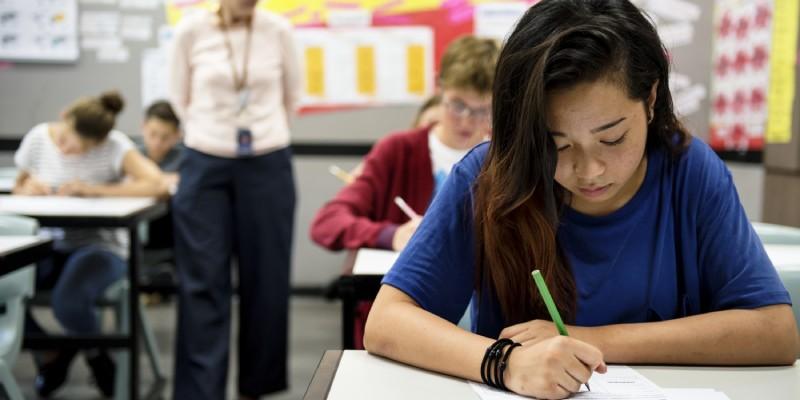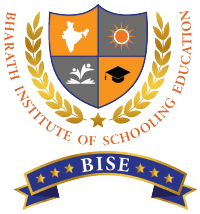CBSE Open Schooling, also known as the Central Board of Secondary Education Open School, offers a flexible and inclusive education platform for students of all ages. It enables individuals to continue their education and obtain recognized certifications, even if they couldn’t complete their studies through traditional methods.
In this article, we will delve into the world of CBSE Open Schooling, explaining the admission process and the many benefits it offers.
What is CBSE Open Schooling?
It is an initiative by the Central Board of Secondary Education that caters to individuals who may have had to discontinue their education due to personal, professional, or physical challenges. This program provides an alternative educational pathway, ensuring that everyone, regardless of their situation, has access to quality education. It is a shining example of inclusivity and flexibility in the education system.
Benefits of CBSE Open Schooling

Let’s understand the benefits of CBSE Open Schooling.
Flexibility in Education
Open Schools epitomize flexibility in education. It empowers students to take control of their learning by allowing them to choose when and where to study. This is especially beneficial for working professionals, homemakers, or those who, for any reason, cannot adhere to the rigid schedules of traditional education.
Inclusivity and Accessibility
One of the most remarkable features of CBSE Open Learning is its commitment to inclusivity. It ensures that every learner has the opportunity to acquire an education. Be it individuals with disabilities, adults seeking to continue their studies, or those residing in remote areas, Open Schools brings the gift of education to their doorstep.
Self-Paced Learning
Open learning is synonymous with self-paced learning. Students are not bound by timelines or curricula. They have the freedom to progress at their own pace, allowing for a more comprehensive understanding of subjects before moving forward. This personalized approach contributes significantly to the quality of education.
Recognized Certification
The certificates awarded by Open Learning hold substantial weight. They are recognized by various educational institutions, making it possible for students to pursue higher education seamlessly. Moreover, employers acknowledge these certifications, enhancing job prospects for graduates.
Eligibility for CBSE Open Schooling

To be eligible for CBSE Open Schooling, students must meet certain criteria. The program is open to students from the age of 14 and above. There are no upper age limits, ensuring that adults who wish to continue their education are welcome to enrol.
Admission Process
The admission process for CBSE Open Schooling is straightforward. Interested students can apply online by providing the necessary documents and paying the requisite fees. Once the application is submitted, the school evaluates it and, upon acceptance, provides students with comprehensive study materials and resources.
CBSE Open Schooling Curriculum

The curriculum offered by CBSE Open Schooling is designed to be on par with that of traditional schooling. Students can choose from a wide range of subjects, spanning from the primary level to the higher secondary level. This comprehensive curriculum ensures that students receive a holistic education.
Study Materials and Resources
CBSE Open Schooling provides students with carefully curated study materials. These materials are designed to facilitate self-paced learning, ensuring that students have access to the resources they need to excel in their studies. In addition to physical textbooks, digital resources are also made available to students.
Examinations and Assessments
CBSE Open Schooling places great emphasis on regular assessments and examinations. These evaluations are crucial for understanding a student’s progress and whether they have grasped the content effectively. It also helps in identifying areas where students might need additional support.
Support Services
The program offers a range of support services to students. This includes dedicated helplines, counselling services, and guidance for students who may need assistance in navigating their educational journey. These support services are a testament to the program’s commitment to helping every student succeed.
Comparison of CBSE Open Schooling with Traditional Education
When compared with traditional education, it’s evident that the alternative system has its unique aspects.
- Flexibility: Offers unmatched flexibility, allowing students to set their own pace and study at their convenience, unlike traditional education, which follows a rigid schedule.
- Inclusivity: It is highly inclusive, catering to diverse learners, including working professionals, dropouts, and individuals with disabilities, unlike traditional education.
- Self-Paced Learning: Encourages self-paced learning, allowing students to grasp concepts thoroughly before moving on, in contrast to traditional education’s fixed curriculum pace.
- Recognition: Certificates are recognized by various institutions and employers, similar to traditional education, opening doors to higher education and job opportunities.
- Personalized Support: Offers personalized support services, including helplines and counselling, which traditional education often lacks.
- Cost-Effective: This can be more cost-effective compared to traditional education, making quality education accessible to a broader demographic.
Challenges and Considerations
While offering numerous benefits, it’s essential to understand the challenges and considerations associated with this system.
- Self-Discipline: Students need strong self-discipline to stay motivated and meet their academic goals, as they don’t have the structured environment of a traditional classroom.
- Isolation: The lack of physical interaction with teachers and peers can lead to a sense of isolation, which is not as prevalent in traditional education.
- Limited Extracurricular Activities: Traditional schools often offer a wide range of extracurricular activities, which may be limited or absent in the alternative system.
- Technology Requirements: Relies on technology, so access to a computer and the internet is essential, which may be a challenge for some students.
No Classroom Environment: Some students thrive in the structured classroom environment, which may be lacking in the alternative system.
- Examination Pressure: While self-paced learning is an advantage, it can also lead to students procrastinating and feeling pressure during exams.
Conclusion
CBSE Open Schooling has emerged as a game-changer in the realm of education. It is an inclusive, flexible, and empowering platform that enables individuals to continue their educational journey regardless of the obstacles they face. With recognition, self-paced learning, and comprehensive support, it stands as a beacon of hope for those who wish to advance their education and career prospects.
FAQs
Who is eligible for CBSE Open Schooling?
It is open to students from the age of 14 and above, with no upper age limits, welcoming adults who want to continue their education.
What is the admission process for CBSE Open Schooling?
Interested students can apply online, submit necessary documents, and pay the requisite fees. Upon acceptance, the school provides comprehensive study materials and resources.
It offers a flexible curriculum, self-paced learning, and extensive support services, making it distinct from traditional education and catering to diverse learning needs.
Are the certificates awarded by CBSE Open Schooling recognized by colleges and employers?
Can I work and study through CBSE Open Schools simultaneously?
Absolutely. The flexibility allows you to balance work and studies effectively, making it accessible for working professionals.
What are the career prospects after completing education through CBSE Open Schools?
Completing your education through Open Schools opens doors to various job opportunities and higher education prospects. It’s a stepping stone to a brighter future.
How are examinations and assessments conducted in CBSE Open Schools?
Open Education places great emphasis on regular assessments and examinations to gauge student progress and understanding, helping identify areas where additional support may be needed.
